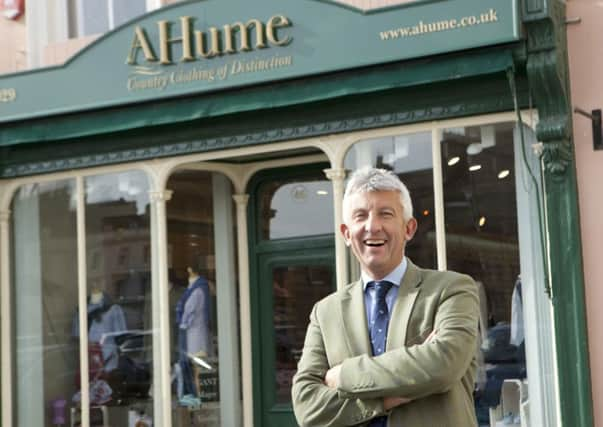Archie Hume: Black Friday bad for brands and customers
This article contains affiliate links. We may earn a small commission on items purchased through this article, but that does not affect our editorial judgement.


So much damage can be done to a brand that is constantly discounted by a retailer, particularly the luxury end of the market, which is about quality and longevity.
It’s particularly tough for smaller brands that cannot afford big discounts and are being “cheapened” by retailers who seem to have an insatiable appetite for them.
Advertisement
Hide AdAdvertisement
Hide AdWe don’t offer big discounts because we believe in the value of the products we sell and our customers appreciate us for this. For us it’s incredibly important to support our local suppliers, so we won’t be offering any discounts during the Black Friday period.
Discounting is also a bad thing for the customer, with some retailers making discounts look impressive by inflating pre-sale prices, rather than offering shoppers a genuinely good deal. This has had the effect of increasing the normal price of products during non-discount periods, as well as encouraging some retailers to lose sight of what it means to set a price based on a product’s value, rather than to help a store hit a sales target.
There’s enormous pressure on retailers to have in-season sales, but the truth is, the world of flash sales and secret codes isn’t always good for customers. On days like Black Friday, when the pressure for big discounts is at its greatest, some retailers are inflating their pre-sale prices to make discounts look more impressive. The result is the sale price is not necessarily a particularly good deal and people are potentially having to pay inflated prices for the rest of the year to support discount periods.
Another problem with big discount days like Black Friday is that prices are being set to help stores hit their sales targets, rather than reflecting the actual value of the products or services on sale. Basing prices on the value of what is sold is not only important to the customer, but also to the brands and suppliers that are represented in retail stores, particularly in our kind of industry.
Earlier this month, consumer group Which? investigated 178 deals from Black Friday in 2015, tracking daily pricing from leading retailers in the lead-up to and after Black Friday. They found that only 90 deals were actually cheaper on Black Friday.
The group said that retailers were inflating the “was” price to make promotions and deals look more attractive. The government’s Pricing Practices Guidance (PPG) states that “was” pricing must be the most recent price the product has been sold at for the last 28 days. Which? have claimed some retailers are using older prices that are higher to make deals look better.
As Pete Moorey, the head of campaigns at Which?, said: “Consumers should be wary of claims of massive savings this Black Friday, as they may not be as spectacular as they seem. Shoppers might be surprised to learn that only half of Black Friday deals are actually cheapest on Black Friday.”
• Archie Hume is the founder of Borders-based country clothing store AHume
